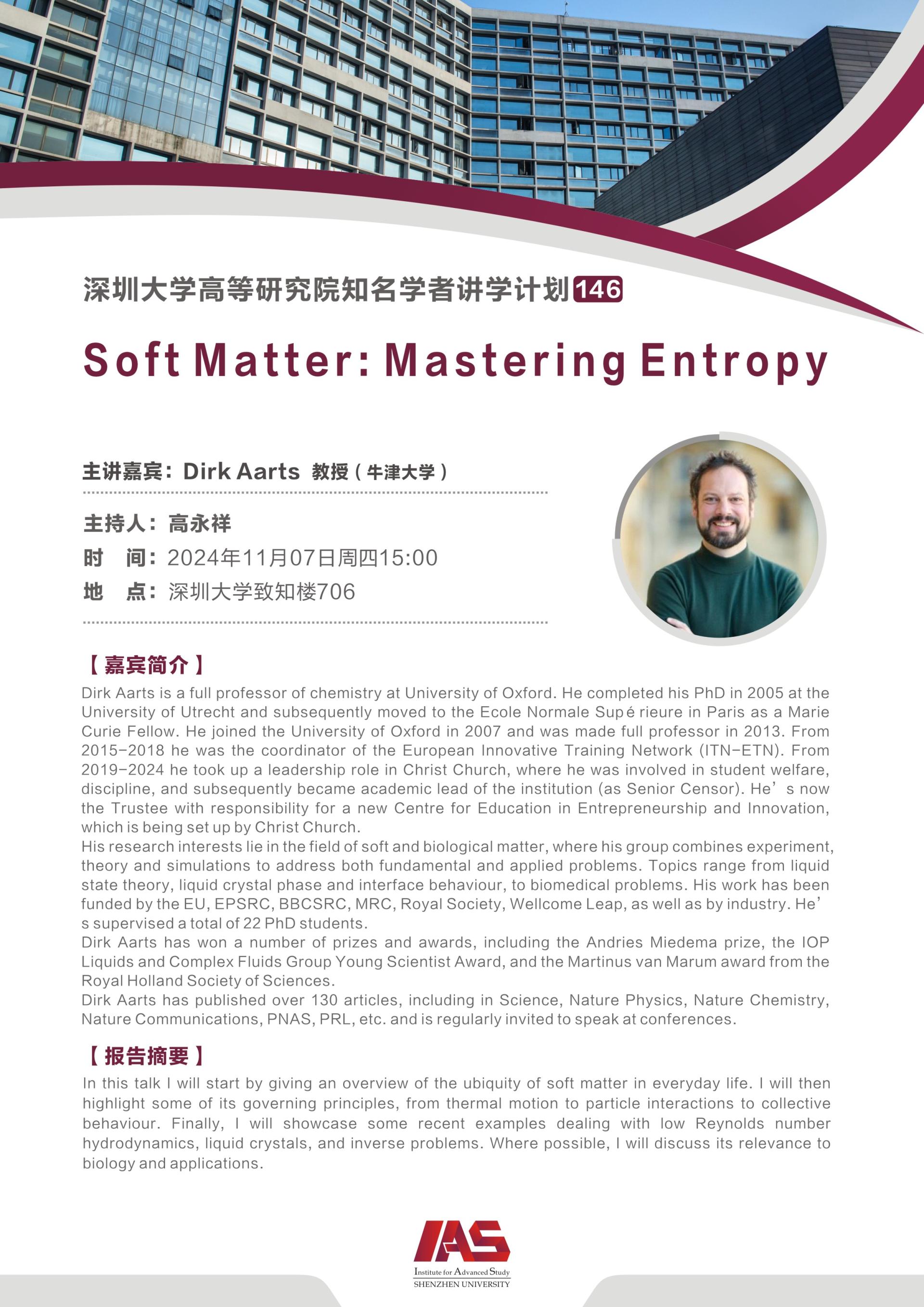报告主题:Soft Matter: Mastering Entropy
主讲人:Dirk Aarts教授(牛津大学)
主持人:高永祥
时 间:2024年11月07日周四15:00
地 点:深圳大学致知楼706
嘉宾简介:
Dirk Aarts is a full professor of chemistry at University of Oxford. He completed his PhD in 2005 at the University of Utrecht and subsequently moved to the Ecole Normale Supérieure in Paris as a Marie Curie Fellow. He joined the University of Oxford in 2007 and was made full professor in 2013. From 2015-2018 he was the coordinator of the European Innovative Training Network (ITN-ETN). From 2019-2024 he took up a leadership role in Christ Church, where he was involved in student welfare, discipline, and subsequently became academic lead of the institution (as Senior Censor). He’s now the Trustee with responsibility for a new Centre for Education in Entrepreneurship and Innovation, which is being set up by Christ Church.
His research interests lie in the field of soft and biological matter, where his group combines experiment, theory and simulations to address both fundamental and applied problems. Topics range from liquid state theory, liquid crystal phase and interface behaviour, to biomedical problems. His work has been funded by the EU, EPSRC, BBCSRC, MRC, Royal Society, Wellcome Leap, as well as by industry. He’s supervised a total of 22 PhD students.
Dirk Aarts has won a number of prizes and awards, including the Andries Miedema prize, the IOP Liquids and Complex Fluids Group Young Scientist Award, and the Martinus van Marum award from the Royal Holland Society of Sciences.
Dirk Aarts has published over 130 articles, including in Science, Nature Physics, Nature Chemistry, Nature Communications, PNAS, PRL, etc. and is regularly invited to speak at conferences.
报告摘要:
In this talk I will start by giving an overview of the ubiquity of soft matter in everyday life. I will then highlight some of its governing principles, from thermal motion to particle interactions to collective behaviour. Finally, I will showcase some recent examples dealing with low Reynolds number hydrodynamics, liquid crystals, and inverse problems. Where possible, I will discuss its relevance to biology and applications.



